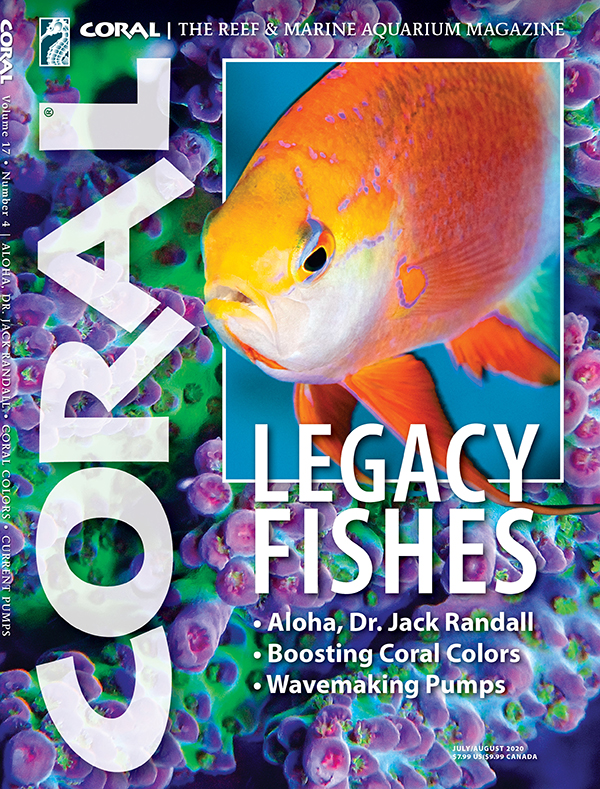
Cover of CORAL Magazine Volume 17, Issue 4 – LEGACY FISHES – July/August 2020. On the cover: Hawaiian Longfin Anthias, Pseudanthias hawaiiensis (Randall 1979): Doug Perrine/Blue Planet Archive. Background: Acropora sp. Immo Gerber
Go to the Digital Edition—for Immediate Reading
The July/August 2020 Issue of CORAL is printed and on its way from New Hampshire to subscribers and leading local retail shops—on sale July 9th, 2020, at the best marine aquarium retail stores everywhere.
Readers of the Digital Edition can have immediate access now—just log in here: CORAL DIGITAL EDITION
Paid subscribers can log in with their email addresses for instant access. The CORAL Digital version is available for desktop and laptop computers, as well as smartphones, tablets, and Kindle readers. To gain access to the current issue and a deep archive of back issues, become a subscriber by following this link:
SUBSCRIBE & SAVE: Just $37 for delivery to your home and access to the CORAL Digital Editions
HEREWITH, a sampling of articles and opening pages for readers curious about what the issue will bring.
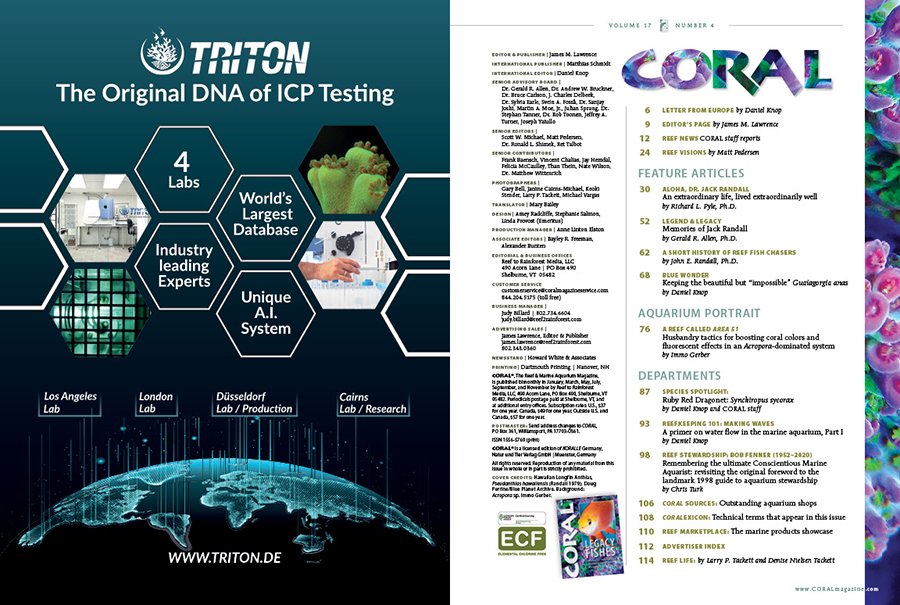
Table of Contents for the July/August 2020 issue of CORAL Magazine. You can view this TOC online.
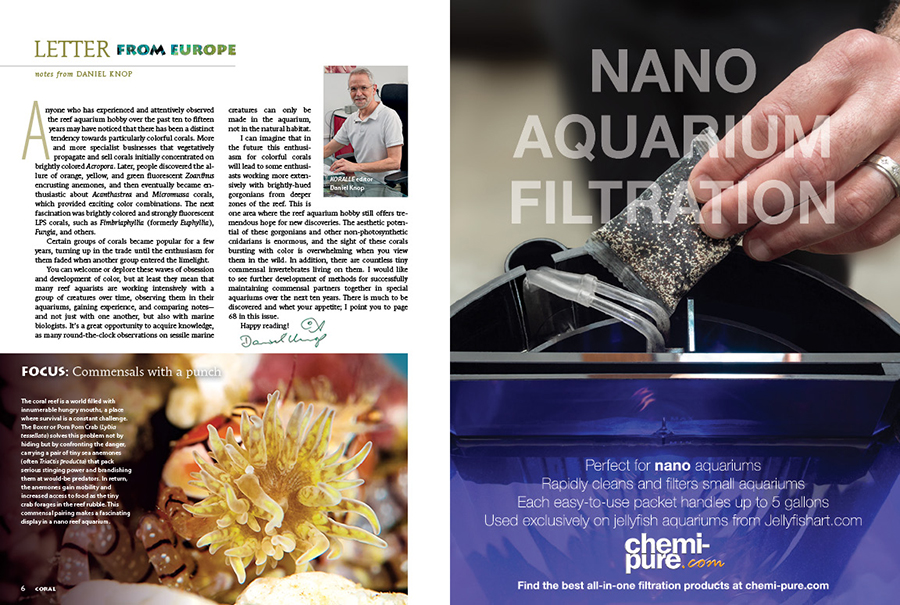
Daniel Knop suggests that our obsession with corals is a great opportunity to acquire knowledge, as many round-the-clock observations on benthic marine creatures can only be made in the aquarium, not in the natural habitat.
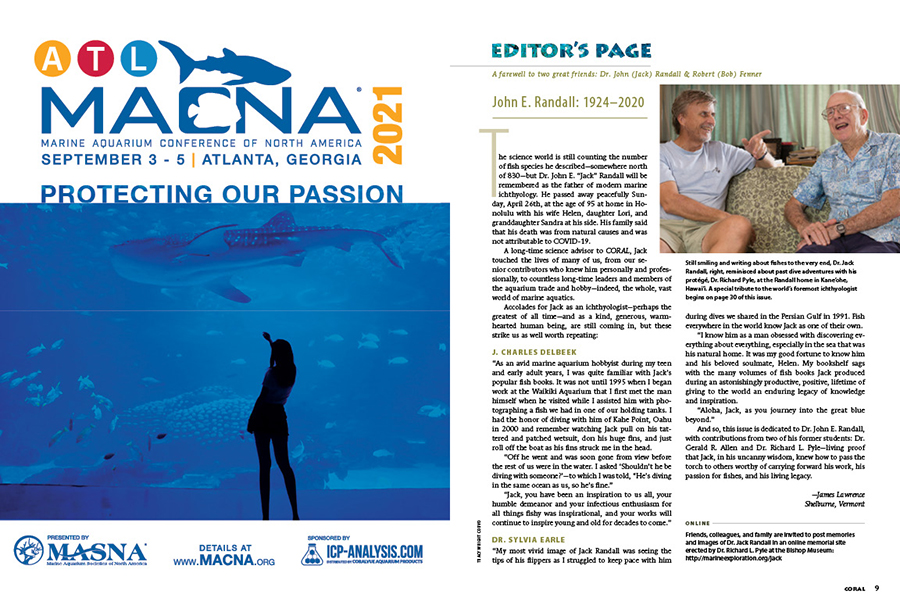
We remember John E. Randall: 1924–2020. The science world is still counting the number of fish species he described—somewhere north of 830—but Dr. John E. “Jack” Randall will be remembered as the father of modern marine ichthyology.
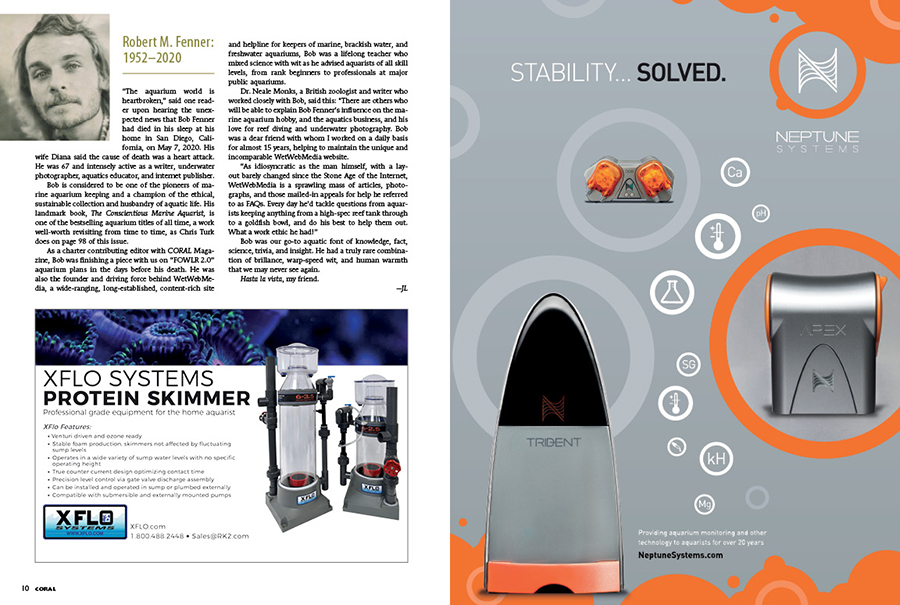
We say farewell to Robert (Bob) M. Fenner, 1952–2020. As a charter contributing editor with CORAL Magazine, Bob was finishing a piece with us on “FOWLR 2.0” aquarium plans in the days before his death.
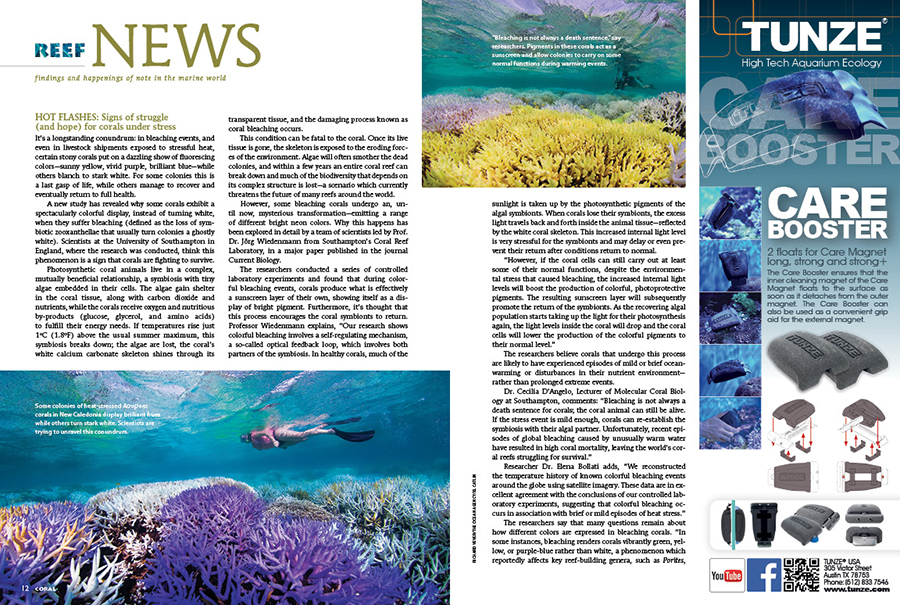
Reef News presents findings and happenings of note in the marine world. In this issue: HOT FLASHES: Signs of struggle (and hope) for corals under stress; Bubble, bubble, Vibrio and trouble: Corals, clams, and warming seawater; World’s rarest living goby: Who can afford it?
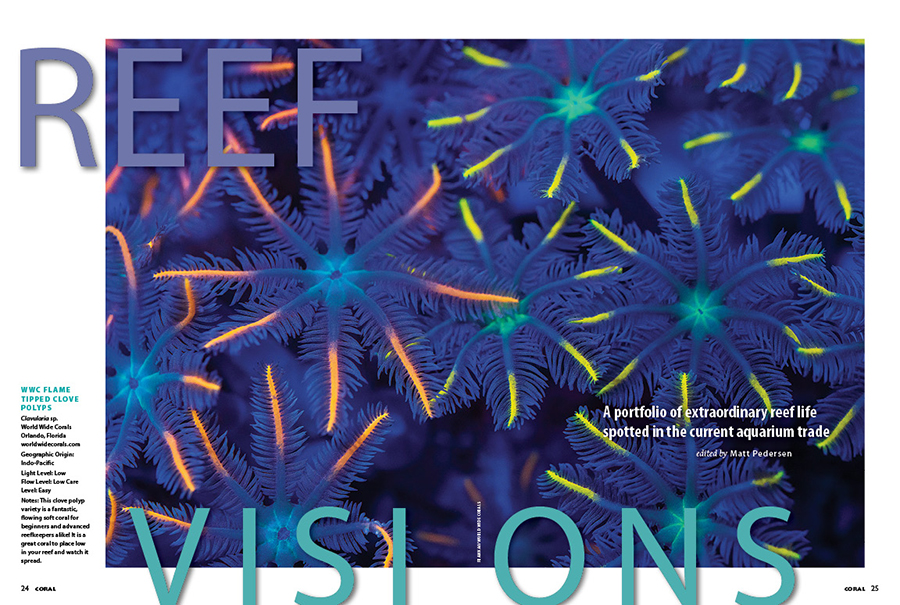
REEF VISIONS: A portfolio of extraordinary reef life spotted in the current aquarium trade. The fireworks may be pandemic-postponed or cancelled this year, but World Wide Corals puts on a show for everyone with their WWC Flame Tipped Clove Polyps as dusk falls over the reef tank!
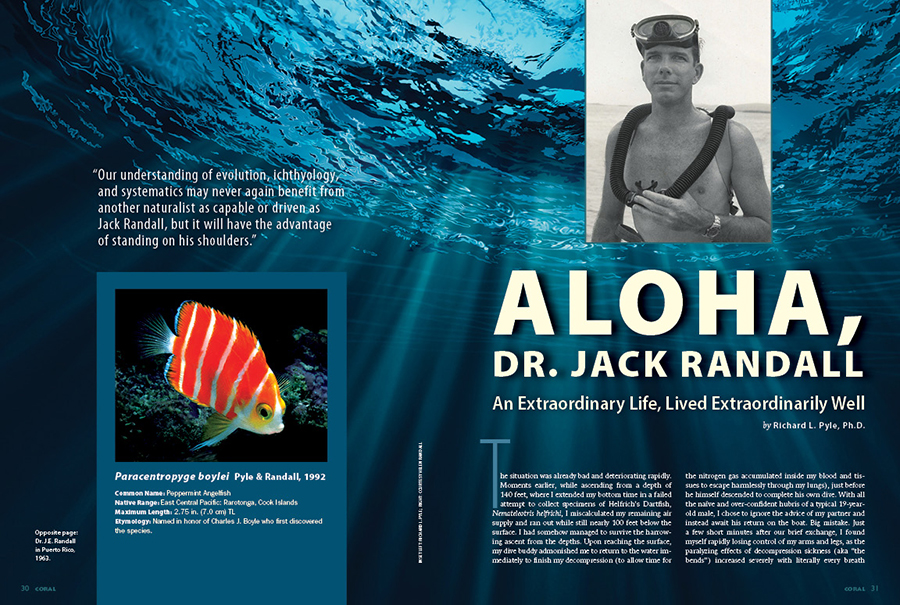
Our understanding of evolution, ichthyology, and systematics may never again benefit from another naturalist as capable or driven as J.E. Randall, but it will have the advantage of standing on his shoulders. Aloha, Dr. Jack Randall: An Extraordinary Life, Lived Extraordinarily Well by Dr. Richard L. Pyle.
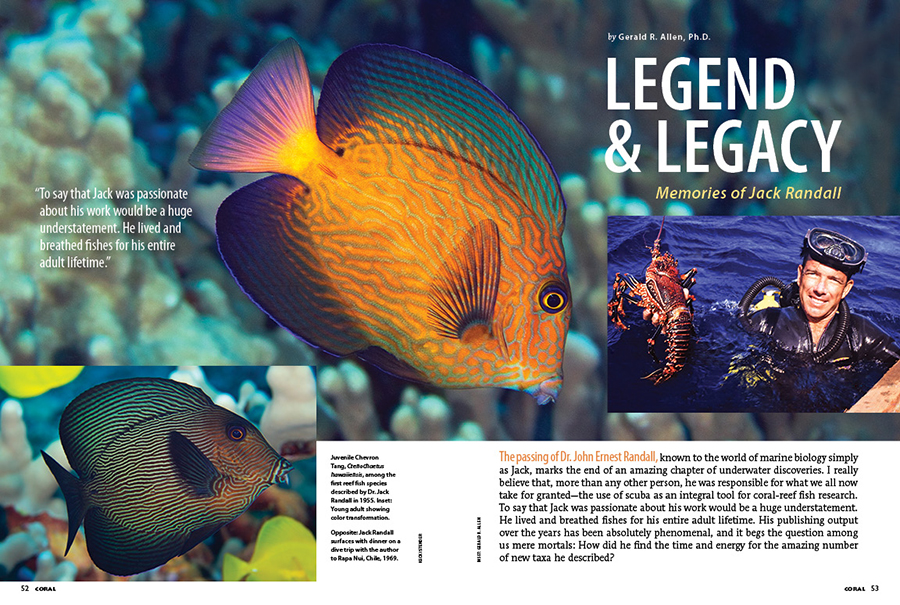
“To say that Jack was passionate about his work would be a huge understatement. He lived and breathed fishes for his entire adult lifetime,” writes Dr. Gerald R. Allen, who shares memories of his mentor in Legend & Legacy.
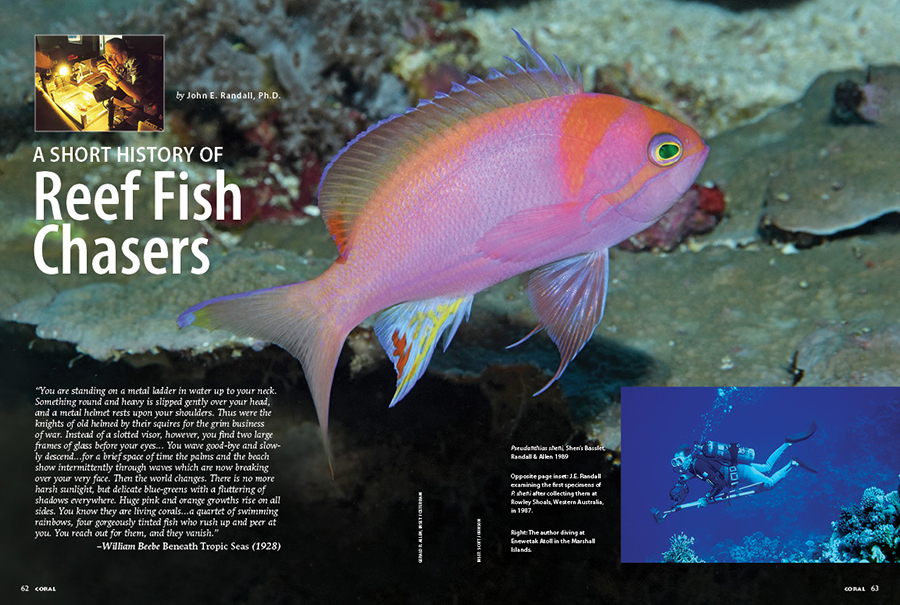
Words from Dr. Jack Randall himself: A Short History of Reef Fish Chasers, excerpted from the foreword to Reef Fishes Volume 1 by Scott W. Michael, and written in 1998.
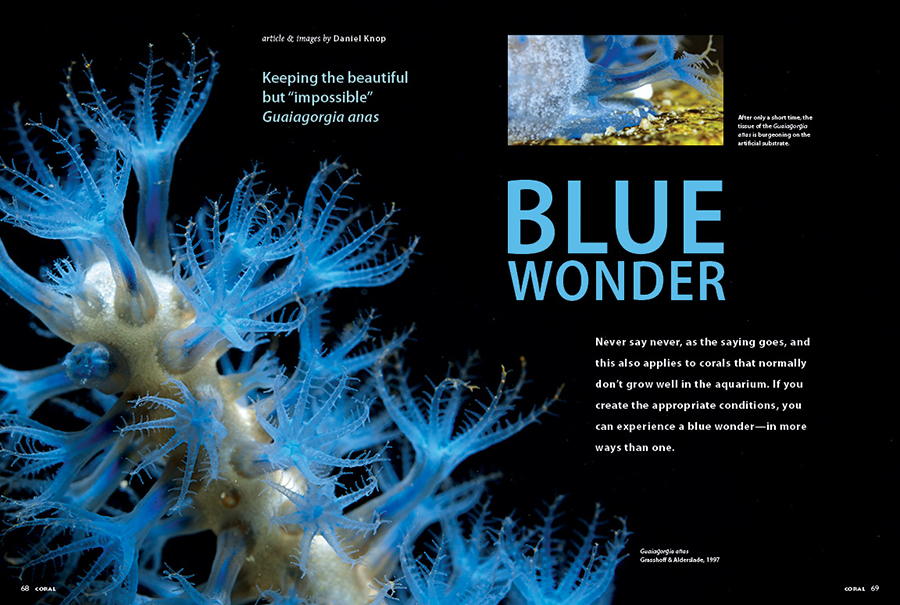
BLUE WONDER! Keeping the beautiful but “impossible” Guaiagorgia anas, a firsthand account spanning years of success, by Daniel Knop.
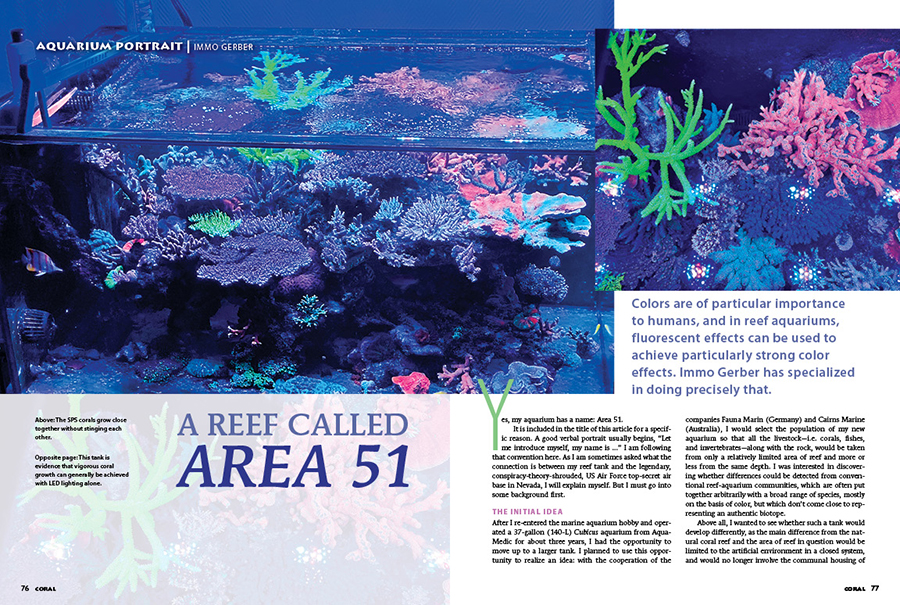
Aquarium Portrait features a reef system called Area 51 by its creator, aquarist Immo Gerber. Learn what’s really going on to cause an otherworldly amount of coral fluorescence in this heart-stopping reef tank. You can read this article for FREE in an exclusive online full excerpt from the pages of CORAL.
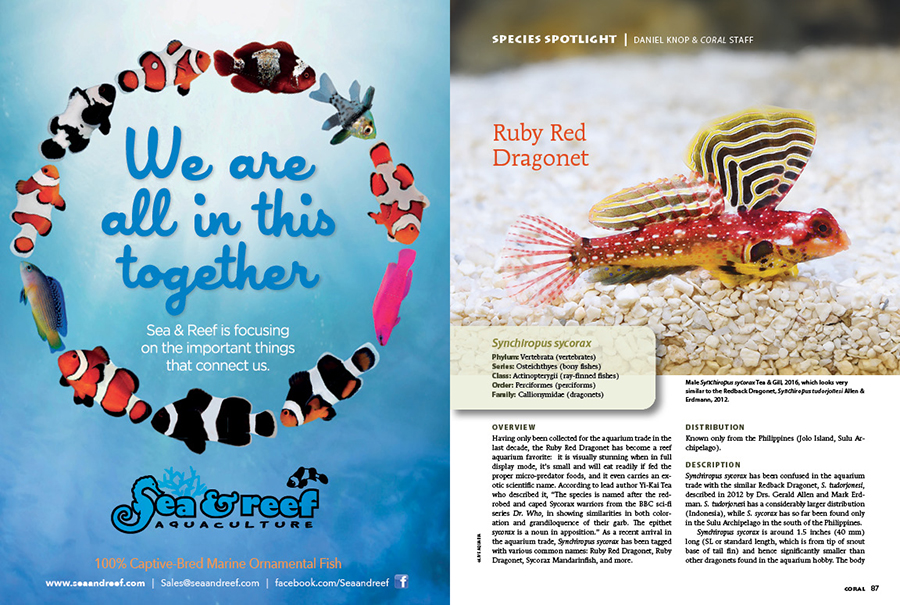
Having only been collected for the aquarium trade in the last decade, the Ruby Red Dragonet has become a reefkeepers’ favorite. Learn all about Synchiropus sycorax in our Species Spotlight.
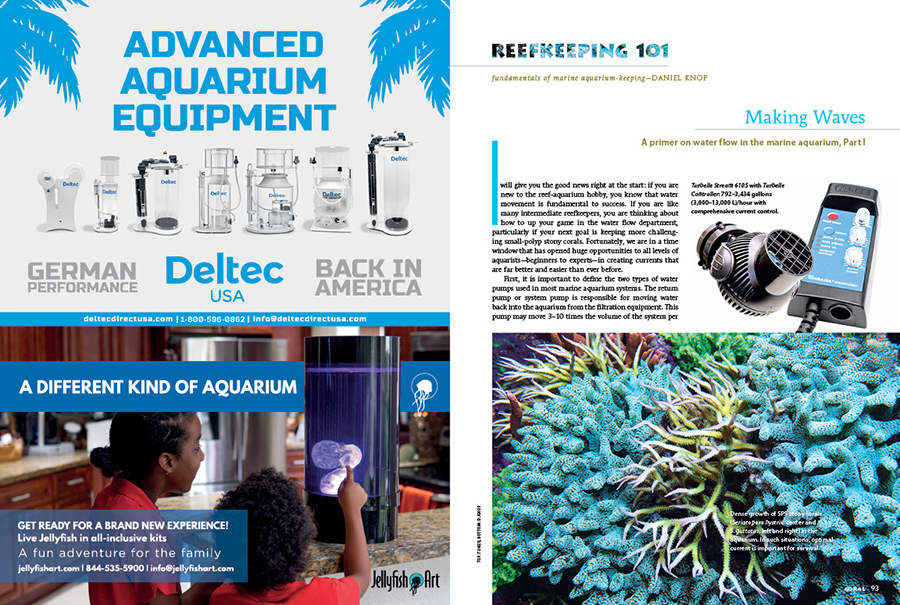
Reefkeeping 101 offers concise insight on topics of interest to all aquarists in a format accessible even to the first-time reefkeeper. In this issue, we start with Part 1 of a primer on water flow in the marine aquarium.
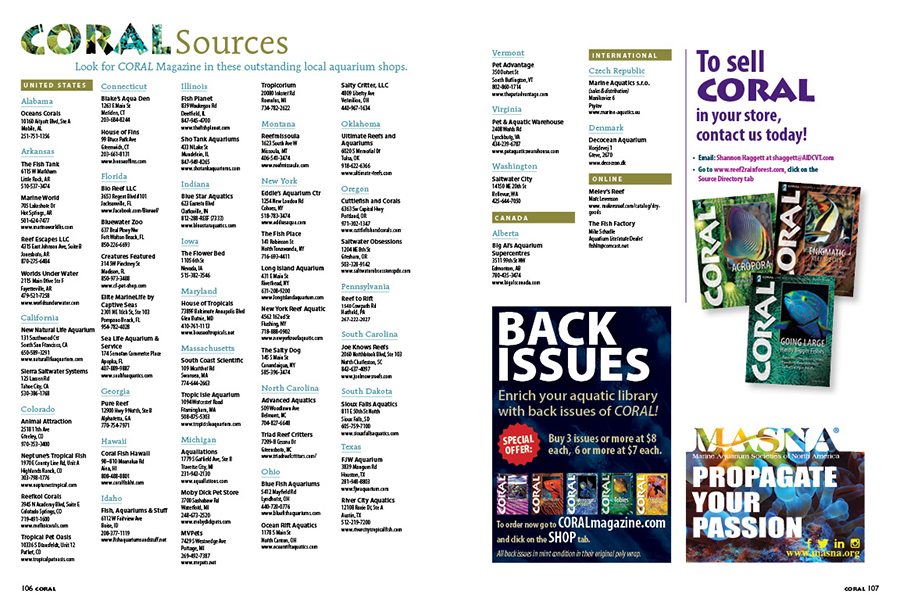
Find a directory of destination aquarium retailers with outstanding livestock, as well as your source for current and hard-to-find back issues of CORAL Magazine! You can view our sources list online anytime.
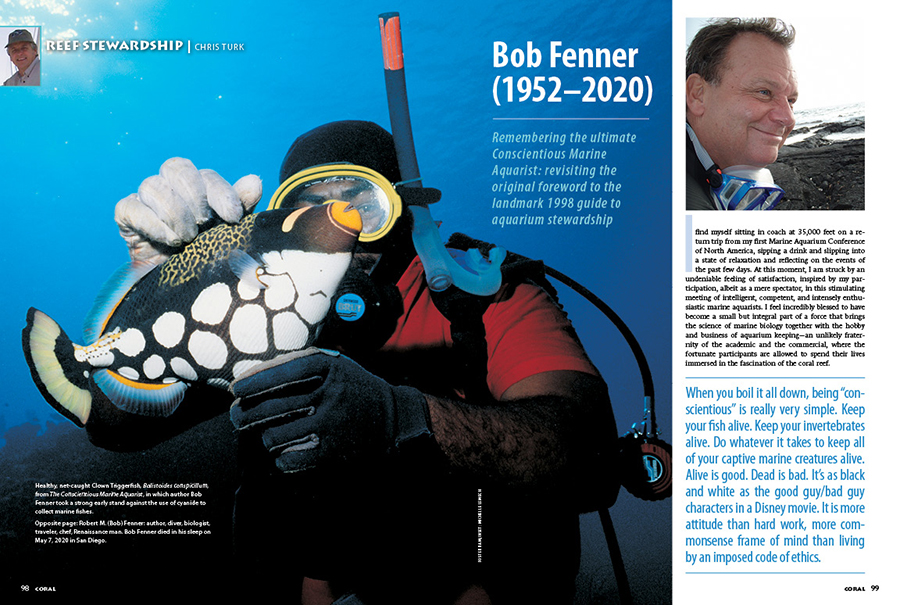
“When you boil it all down, being ‘conscientious’ is really very simple. Keep your fish alive. Keep your invertebrates alive. Do whatever it takes to keep all of your captive marine creatures alive. Alive is good. Dead is bad. It’s as black and white as the good guy/bad guy characters in a Disney movie. It is more attitude than hard work, more commonsense frame of mind than living by an imposed code of ethics.” Marine biologist Chris Turk remembers The Ultimate Conscientious Marine Aquarist: Bob Fenner (1952–2020)
• Already a subscriber? ACCESS the Digital Edition of this issue now!
CORAL Subscribers can log in with their email address and read the Digital Edition and App Editions immediately.
• SUBSCRIBE and never miss an issue of CORAL. Paid subscribers receive the classic Print Edition, as well as Free Access to the Digital Edition and CORAL Apps for mobile devices—via iTunes, Google Play for Android devices and the Amazon Kindle store.




